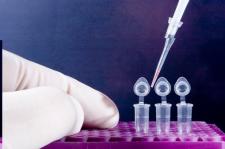Should Heritable Gene Editing Be Used on Humans?
By Marcy Darnovsky & George Church,
Wall Street Journal
| 04. 10. 2016
"YES" by George Church; "NO" by Marcy Darnovsky
The development of technology that allows human genes to be edited has stirred tremendous excitement about the potential for treating debilitating and life-threatening diseases. The technology could lead to drugs that would treat cancers and other diseases that currently are incurable.
But another facet of this breakthrough has many scientists and others worried: the possibility that the genetic makeup of sperm and eggs could be edited so that diseases that can be inherited won’t be passed on to children yet to be born. One concern is that gene editing that affects future generations, not just an individual, is too risky given our still incomplete understanding of the human genome and how changes might affect it. Another is that the ability to edit heritable traits could result in so-called designer babies, with parents choosing traits such as intelligence or physical characteristics.
Others say we can meet those challenges, and the potential benefits are too great to pass up.
George Church, professor of genetics at Harvard Medical School, favors a careful exploration of the potential of heritable gene editing. Marcy Darnovsky, executive...
Related Articles
By Liyan Qi and Jonathan Cheng, The Wall Street Journal | 03.26.2025
photo via Wikimedia Commons licensed under CC by 3.0
Chinese scientist He Jiankui set off global outrage and landed in prison after he skirted ethical guidelines and claimed he had produced genetically modified babies designed to resist HIV infection.
Now, the self-styled ...
By Anna Louie Sussman, The New York Times | 03.25.2025
On June 24, 2022, the same day the Supreme Court issued its decision in Dobbs v. Jackson Women’s Health Organization, I received a call from the fertility clinic where I’d been undergoing in vitro fertilization, informing me that seven of...
By Michael Gibney, PharmaVoice | 03.20.2025
The death this week of a teenager receiving Sarepta Therapeutics’ gene therapy Elevidys for Duchenne muscular dystrophy is a tragic reminder of the stakes involved in cutting-edge biotech innovation.
While gene therapies like Sarepta’s offer an opportunity to treat and...
By Staff, The Medicine Maker | 03.21.2025
"The Promise and Peril of CRISPR" cover by Johns Hopkins University Press
As a paediatrician taking care of children with sickle cell disease, Neal Baer, a Harvard Medical School graduate, was in awe of the power of CRISPR technologies. Later...




